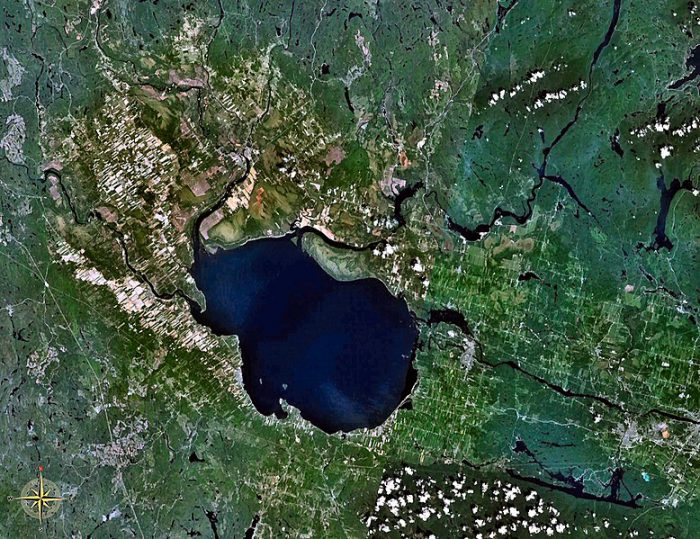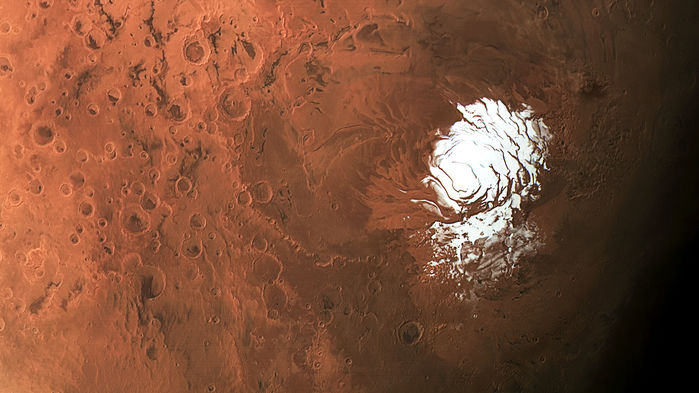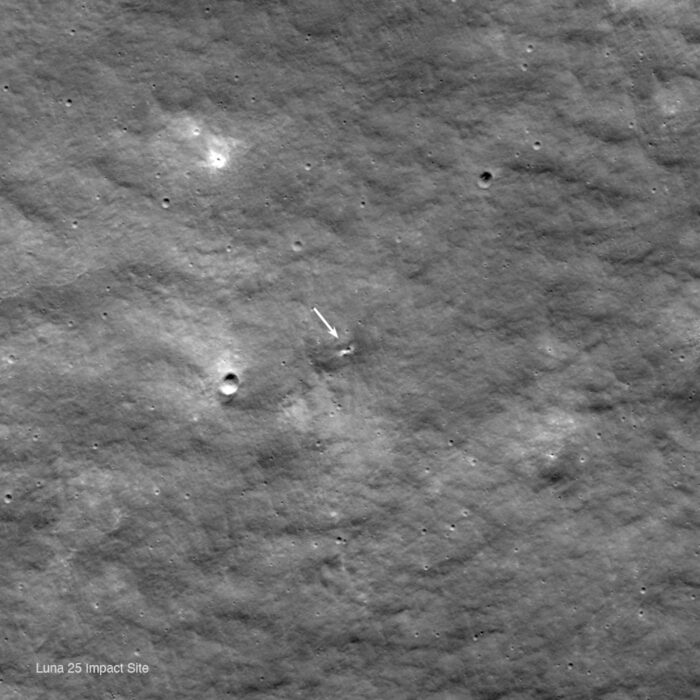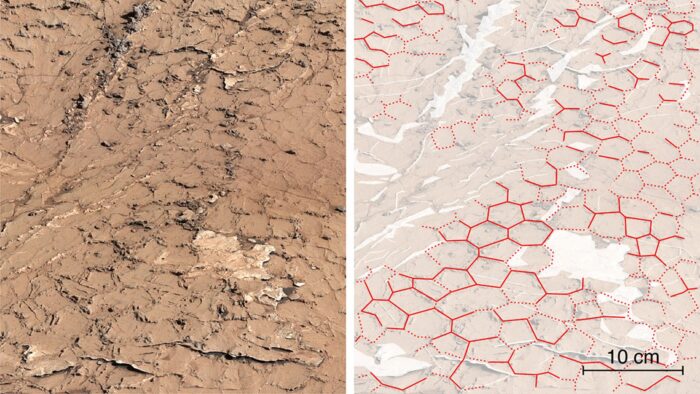Mars may be a pretty cold planet, but it's been a hot bed of scientific theories and activity lately. For one, there is always some new mission being announced to the Red Planet. Then there was the recent discovery of organic matter there. Could anything be bigger than that?
Turns out, the answer is yes. A group of European planetary scientists believe that they have detected an underground lake under Mars' south pole. Yep, not ice. And not some weird little trickle of water here and there.
An actual underground lake.
What-er discovery!
A model of the Mars Express just before its launch in 2003. (Getty Embed)
If true, this would be a huge breakthrough. As scientist Tanya Harrison put it in an interview with The Verge website: "Pretty much anywhere there is liquid water on Earth, you find something that’s managed to survive in it." So before we all get too excited here, let's take a step back.
How did they make this discovery?
The Mars Express Orbiter is a European satellite that has been flying around the planet since 2003. Scientists were using it to scan the south pole when they started to get some intriguing underground readings. It was about a 1.6 km (1 mi.) underground and 20 km (12.4 mi.) wide. And the readings that were coming back matched the radar signature of buried water on Earth.
After spending weeks exhausting alternative explanations for what else this feature could be, scientists feel very certain that this is the real deal. Liquid water on Mars!
What-er this mean?

If this underground lake exists, it would cover an area similar to the 50th biggest lake in Canada, Lac Saint-Jean in Quebec. But how deep would it be? No one knows yet. (NASA WorldWind/Wikimedia Commons)
Okay, not to be a wet blanket here, but even if this really is an underground lake, it doesn't mean that we can expect to drill a deep hole in the pole and go fishing for Martian sea bass. Even on Earth, the kind of life that is usually found in places like this is tiny microscopic bacteria. But, it would still be extraterrestrial life. And that would be massive.
Another big question? How deep is it? The radar only reflects back the probable water's surface. It could be a shallow muddy mess, or it could be a fairly deep reservoir of water.
In short, research into this is only beginning. But with a new wave of Mars exploration set to begin in 2020 and beyond, the To-Do List once our new probes get there just keeps growing!
 What's hiding under Mars' south pole? Could it really be a lake? (ESA/DLR/FU BERLIN/CC BY-SA)
What's hiding under Mars' south pole? Could it really be a lake? (ESA/DLR/FU BERLIN/CC BY-SA)









